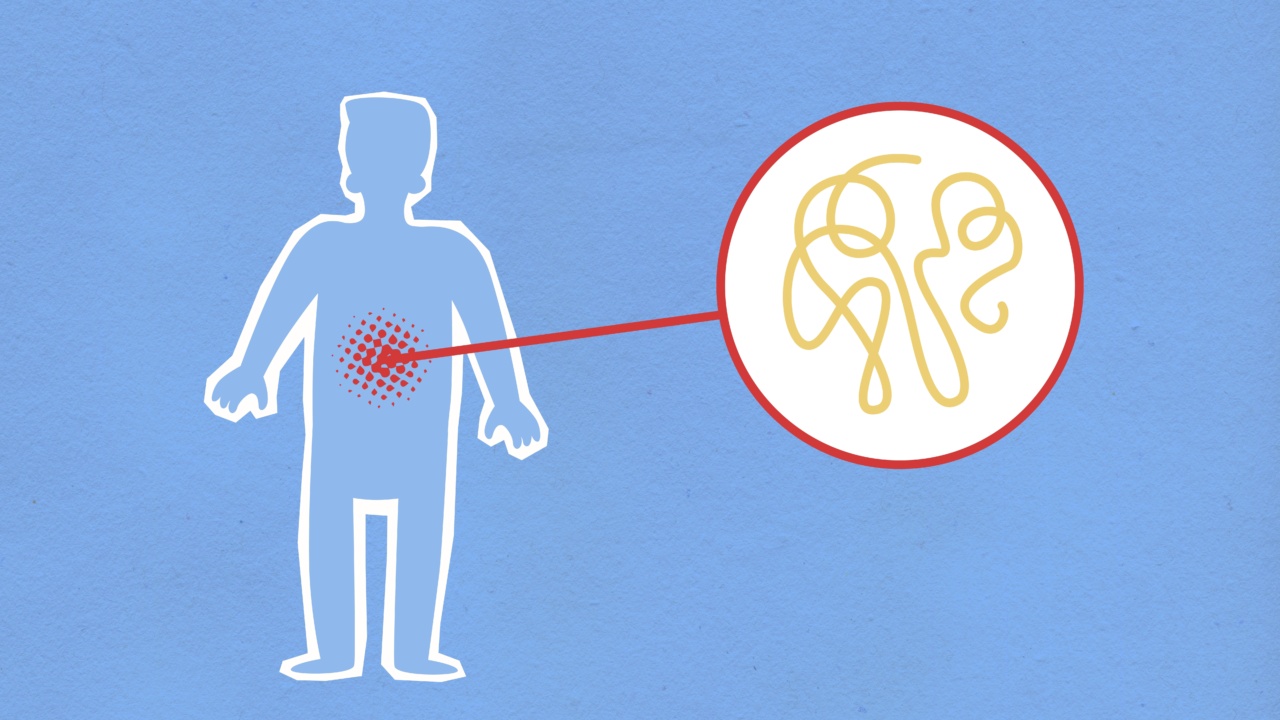Heartburn and stomach pain are common digestive conditions that happen to almost everyone at some point in their lives. Heartburn is a burning sensation felt in the chest, while stomach pain is discomfort felt in the abdominal area.
Both conditions can be caused by a variety of factors, such as diet, stress, and medical conditions.
If you’re experiencing heartburn or stomach pain, here are 30 effective tips to help ease your symptoms:.
1. Modify Your Diet
The food you eat can have a significant impact on your digestive health. Some foods can trigger heartburn and stomach pain, while others can prevent them. Here are some tips for modifying your diet:.
- Avoid spicy, fried, and fatty foods that can cause heartburn and stomach pain.
- Limit your intake of caffeine, alcohol, and carbonated drinks that can irritate your stomach lining.
- Eat smaller, more frequent meals instead of three large meals to reduce the pressure on your stomach.
- Include fiber-rich foods, such as fruits, vegetables, and whole grains, in your diet to promote healthy digestion.
- Avoid eating late at night or right before bed, which can cause acid reflux and heartburn.
2. Drink Plenty of Water
Drinking water is essential for good digestive health. It helps to flush out toxins and aids in the digestion and absorption of food. Drinking plenty of water can also prevent constipation, which can contribute to stomach pain and discomfort.
3. Use Digestive Enzyme Supplements
Digestive enzyme supplements are enzymes that aid in the digestion of food. They can be helpful for people who have difficulty digesting certain foods, such as dairy or gluten.
Digestive enzyme supplements can also reduce bloating and gas, which can cause stomach pain and discomfort.
4. Try Probiotics
Probiotics are beneficial bacteria that live in your gut and promote healthy digestion. They can be helpful for people who suffer from digestive conditions such as irritable bowel syndrome (IBS) or inflammatory bowel disease (IBD).
Probiotics can ease stomach pain and discomfort by promoting healthy digestive function.
5. Avoid Smoking
Smoking can irritate your stomach lining and contribute to heartburn and stomach pain. Quitting smoking can improve your digestive health and reduce your risk of developing digestive disorders.
6. Manage Stress
Stress can have a significant impact on your digestive health. When you’re stressed, your body produces cortisol, a hormone that can increase inflammation in your body and irritate your stomach lining.
Managing stress through relaxation techniques, such as meditation or deep breathing, can help to ease stomach pain and discomfort.
7. Get Enough Sleep
Sleep is essential for good digestive health. When you’re sleep-deprived, your body produces more cortisol, which can affect your digestive function.
Getting enough sleep can help to regulate your digestive system and ease stomach pain and discomfort.
8. Exercise Regularly
Exercise can be helpful for maintaining good digestive health. It can stimulate your digestive system and reduce the risk of constipation. However, be careful not to exercise too vigorously after eating, as this can cause stomach pain and discomfort.
9. Try Acupuncture
Acupuncture is an alternative therapy that can be helpful for treating digestive conditions. It involves the insertion of small needles into specific points on your body to stimulate the flow of energy.
Acupuncture can help to ease stomach pain and discomfort by promoting healthy digestive function.
10. Use Herbal Remedies
Herbal remedies can be helpful for treating digestive conditions. Here are some herbs that can ease heartburn and stomach pain:.
- Chamomile: Chamomile tea can reduce inflammation in your stomach and ease stomach pain and discomfort.
- Peppermint: Peppermint tea can reduce bloating and gas, which can cause stomach pain and discomfort.
- Ginger: Ginger tea can reduce inflammation in your stomach and ease stomach pain and discomfort.
- Fennel: Fennel seeds can ease bloating and gas, which can cause stomach pain and discomfort.
11. Take Over-The-Counter Medications
Over-the-counter medications can be helpful for treating heartburn and stomach pain. Here are some medications that can ease your symptoms:.
- Antacids: Antacids neutralize stomach acid and can relieve heartburn and acid reflux.
- H2 blockers: H2 blockers reduce the amount of acid your stomach produces and can relieve heartburn and acid reflux.
- Proton pump inhibitors (PPIs): PPIs block the production of acid in your stomach and can relieve heartburn and acid reflux.
- Pain relievers: Over-the-counter pain relievers, such as ibuprofen or acetaminophen, can relieve stomach pain and discomfort.
12. See a Doctor
If your heartburn or stomach pain persists despite making lifestyle changes and using over-the-counter medications, it’s important to see a doctor. They can perform tests to rule out more serious conditions, such as ulcers or gastritis.
13. Elevate Your Head While Sleeping
If you suffer from nighttime heartburn, try elevating your head while sleeping. You can do this by using a wedge pillow or raising the head of your bed by six to eight inches.
This can prevent acid from flowing back into your esophagus and causing heartburn.
14. Chew Gum
Chewing gum can stimulate the production of saliva, which can help to neutralize stomach acid and ease heartburn and acid reflux.
15. Wear Loose Clothing
Tight clothing can put pressure on your stomach and contribute to heartburn and stomach pain. Wearing loose-fitting clothing can improve your digestive health and ease your symptoms.
16. Eat More Slowly
Eating too quickly can cause you to swallow air, which can contribute to bloating and gas. Eating more slowly can prevent these symptoms and ease your stomach pain and discomfort.
17. Don’t Lie Down After Eating
Lying down after eating can cause acid to flow back into your esophagus and cause heartburn. Wait at least two to three hours after eating before lying down.
18. Try Yoga
Yoga can be helpful for easing digestive conditions. Certain yoga poses, such as the seated forward bend or the happy baby pose, can stimulate your digestive system and ease stomach pain and discomfort.
19. Use Heat Therapy
Heat therapy, such as using a heating pad or taking a warm bath, can relax your muscles and ease stomach pain and discomfort.
20. Take a Walk
Taking a walk after eating can stimulate your digestive system and reduce the risk of constipation. It can also ease bloating and gas, which can cause stomach pain and discomfort.
21. Try Massage Therapy
Massage therapy can be helpful for easing digestive conditions. Massaging your abdominal area can stimulate your digestive system and reduce bloating, gas, and stomach pain.
22. Use Essential Oils
Essential oils can be helpful for easing digestive conditions. Here are some essential oils that can ease heartburn and stomach pain:.
- Lavender: Lavender oil can reduce inflammation in your stomach and ease stomach pain and discomfort.
- Peppermint: Peppermint oil can reduce bloating and gas, which can cause stomach pain and discomfort.
- Ginger: Ginger oil can reduce inflammation in your stomach and ease stomach pain and discomfort.
- Lemon: Lemon oil can stimulate your digestive system and reduce the risk of constipation.
23. Try Acupressure
Acupressure is similar to acupuncture, but it involves applying pressure to specific points on your body with your fingers or hands. Acupressure can stimulate your digestive system and ease stomach pain and discomfort.
24. Don’t Overeat
Overeating can put pressure on your stomach and contribute to heartburn and stomach pain. Eating until you’re only about 80% full can prevent these symptoms.
25. Track Your Symptoms
Keeping track of your symptoms can help you to identify patterns and triggers. This can help you to make lifestyle changes that will ease your heartburn and stomach pain.
26. Try Reflexology
Reflexology is an alternative therapy that involves applying pressure to specific points on your feet to stimulate your organs. Reflexology can be helpful for easing digestive conditions and reducing stomach pain and discomfort.
27. Avoid Trigger Foods
Identifying and avoiding trigger foods can prevent heartburn and stomach pain. Common trigger foods include spicy foods, fried foods, fatty foods, and caffeine.
28. Don’t Drink Too Much Alcohol
Drinking too much alcohol can irritate your stomach lining and contribute to heartburn and stomach pain. Limit your alcohol intake to prevent these symptoms.
29. Try Meditation
Meditation can be helpful for easing stress and anxiety, which can contribute to digestive conditions. It can also promote healthy digestive function and ease stomach pain and discomfort.
30. Use Aloe Vera Juice
Aloe vera juice can reduce inflammation in your stomach and promote healthy digestion. Drink a small amount of aloe vera juice before meals to ease stomach pain and discomfort.
Conclusion
Heartburn and stomach pain can be uncomfortable and disruptive to your daily life. By making lifestyle changes and using these effective tips, you can ease your symptoms and promote healthy digestion.































